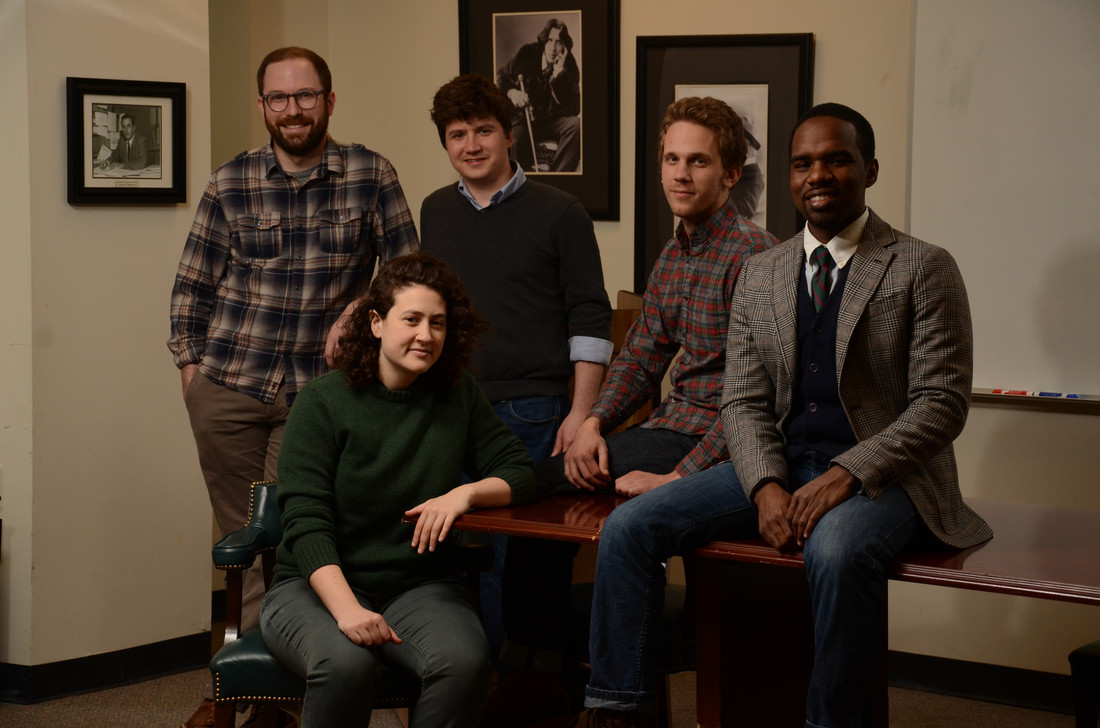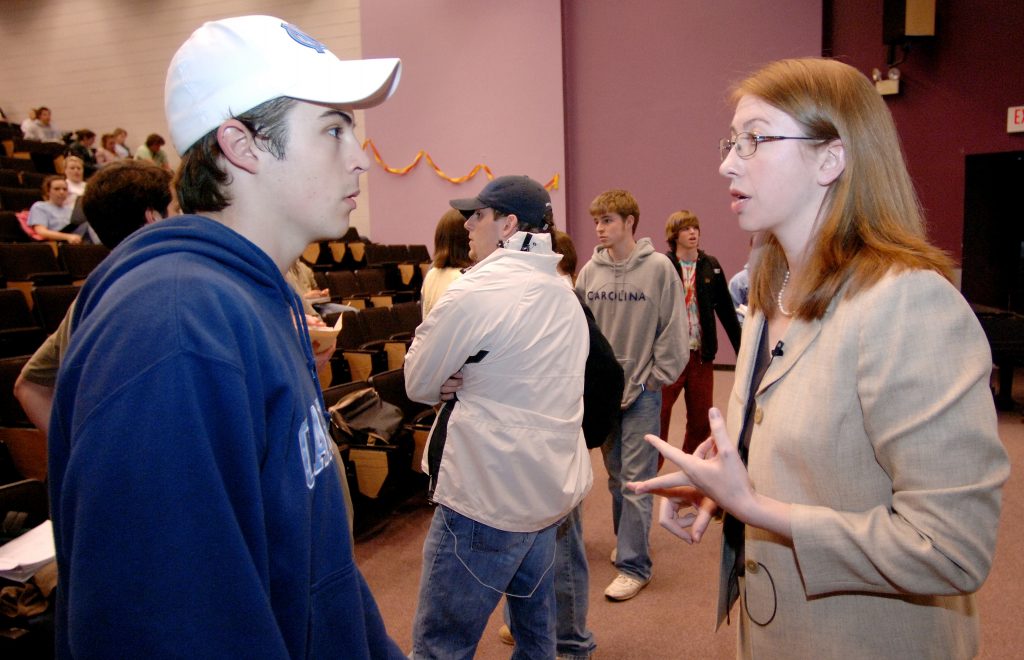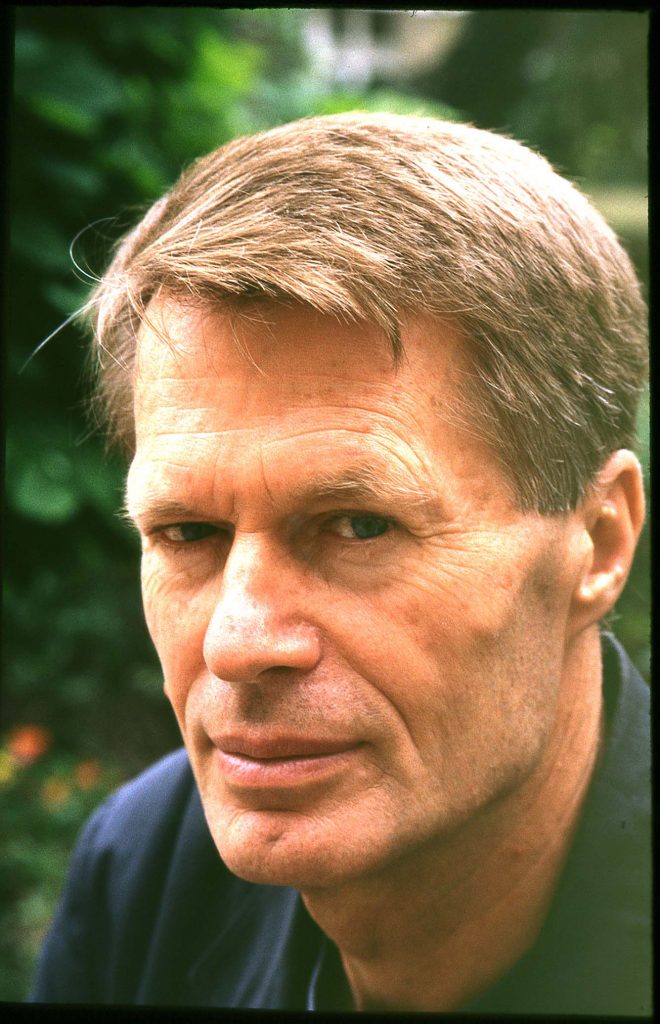
What does American mean?
Answering that question is a nuanced and expansive task for scholars in American studies.
“People think they know what it means when we talk about America, but there are hundreds of different definitions and perspectives,” explains associate professor Patricia Sawin, director of graduate studies in the department of American studies in UNC’s College of Arts and Sciences. With the creation of a Ph.D. program in the department, a new generation of scholars will explore some of these meanings.
The program only recently welcomed the inaugural cohort of six doctoral students in the fall of 2013. The foundations of the new program, however, evolved over decades at Carolina.
The University already had a thriving interdisciplinary undergraduate American studies program with strong concentrations as well as a prestigious master’s program in folklore, says Joy Kasson. Kasson, a professor of American studies and English, was the former chair of the department of American studies and spearheaded the development of the new program.
“All the pieces were there,” says Bernard Herman, professor of American studies and current department chair.
During Kasson’s tenure as chair, the faculty began to “fill out the offerings” with graduate courses. “We all had a dream of a Ph.D. program,” she remembers. They took initial steps to fulfill that dream by hiring the faculty necessary and seeking support from the administration, which they received. In 2008, when the American studies and folklore programs merged to form the department of American studies, a committee continued the process.
“Early on, we discussed what the shape of a Ph.D. program in American studies at UNC would look like. What special qualities would it have? A really successful Ph.D. program would draw on the strengths of the University, broadly considered. We crafted our proposal to emphasize signature strengths,” explains Kasson.
Carolina’s strengths in the field were many. “The elements that make us stand apart are folklore, American Indian studies, Southern studies — they’re particularly distinctive. And the new digital humanities initiative is also at home in the department,” Herman says. “The program plays to the historic and established strengths and to a commitment for engaged scholarship and the kind of collaborative work that is really characteristic of Carolina.”
These strengths make the program especially attractive to certain scholars. “If someone wants to study, say, 19th century American literature and culture, UNC would be a great place. On the other hand, a scholar might also want to go to Yale or Harvard to study those things,” Sawin says. “But if someone wants to study the folk revival or changing perceptions of blues in the American South or the emergence of Lumbee identity or changes with the Eastern Band of Cherokee, this would be a much more logical place.”
In addition to emphasizing established strengths, the program focuses on preparing students for the next step, whether they choose to continue as college professors or work in the public sphere. Or perhaps both. “The end game for doctoral work used to be to teach in the academy. The field has changed dramatically and, I think, for the better. We’re now looking at something that is much more dynamic and much more hybridized — new configurations such as the curator-teacher or the policy analyst-teacher. We wanted to do something that would really recognize those shifts,” Herman continues.
The plan for the program garnered notable support from the Carolina community, both on campus and off. “There was a lot of enthusiasm and support for the new doctoral program from UNC-Chapel Hill. We also had some very farsighted donors who could see the benefits of the new degree we were proposing,” Kasson says. “It was important to have these different kinds of support.”
Herman emphasizes that The Graduate School was a “powerful, supportive advocate” during the creation process.
And, of course, several other very important people were intrigued by the proposed program — applicants. The first year, the program received more than 40 applications for the five spots available. The acceptance rate was so positive that ultimately six students were taken rather than five, and all of the accepting students were among the admission committee’s top eight applicants. “It says a lot about the quality of a place that that could happen in the very first class,” Herman affirms.
While the second cohort of students has not been finalized yet, the program received nearly 70 applications.
The six doctoral students who began last fall each come with unique backgrounds and interests that make them special, Kasson says. The students themselves have become strengths of the program.
“We’ve got a very diverse group with different interests,” Kasson explains. “Yet the theory of this program is that people with different interests will stimulate each other and teach each other.”
Read more about the backgrounds and interests of the new Ph.D. students in American studies.
Story by Laura Lacy, courtesy of The Graduate School.


